To become the only female emperor in the history of feudal China, Empress Wu Zetian undoubtedly went through many challenges.
The Status of Women in Feudal Society
Compared to ancient times, women’s rights and social status have significantly improved in modern society, which increasingly values women’s contributions to societal development.
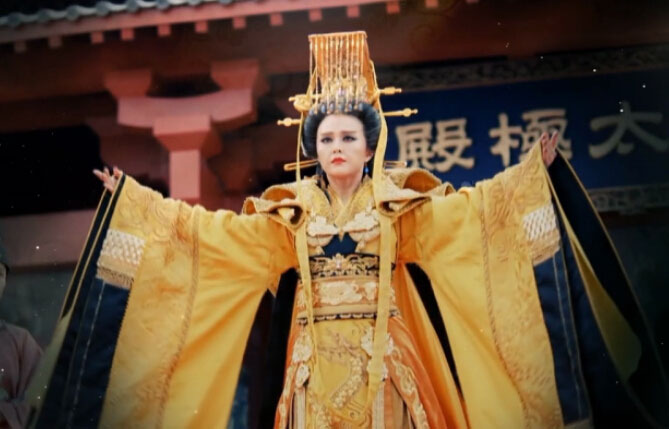
Wu Zetian – The first female emperor in the history of China.
Nowadays, women can do everything that men can do, and often even perform better than their male counterparts.
Not only has their status in society improved, but women’s positions within families have also been elevated, with modern women increasingly having a voice in family life.
As a result, in contemporary families, it is becoming more common for wives to manage their husbands closely.
In fact, the emergence of this phenomenon does not necessarily mean that modern husbands fear their wives; it may also be a way for them to express respect and love for the woman they cherish.
In stark contrast to modern times, women’s social status in ancient times was extremely low.
Women in ancient society essentially had no social standing and were prohibited from participating in many aspects of life. For instance, they were not allowed to attend school, take imperial examinations, or hold official positions.
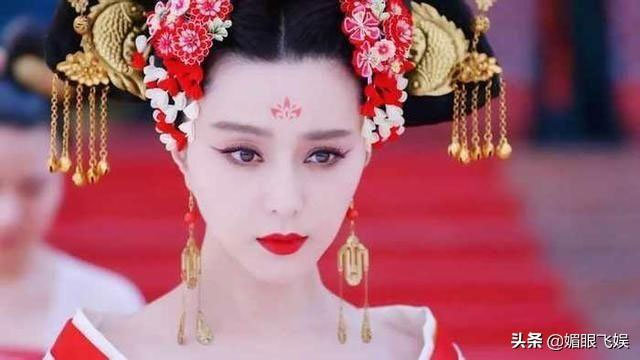
The image of Wu Zetian on screen.
Under the feudal system, women were not permitted to hold official positions, let alone aspire to the highest position of emperor.
You might find it strange that there was indeed a female emperor in the history of feudal China. This female emperor was Wu Zetian.
So, why is it still said that women could not become emperors in ancient times?
The Tumultuous Path of Wu Zetian to the Throne
In history, Wu Zetian did hold a grand and formal coronation ceremony, but in the history of feudal China, apart from her, there was no other female emperor.
To reach that supreme position, Wu Zetian had to employ various cunning strategies and schemes.
So, what clever tactics helped Wu Zetian realize her imperial dream?
After the death of Emperor Gaozong of the Tang Dynasty, all power in the court fell into Wu Zetian’s hands. Although she had not yet become emperor at that time, the power she wielded was indeed comparable to that of an emperor.
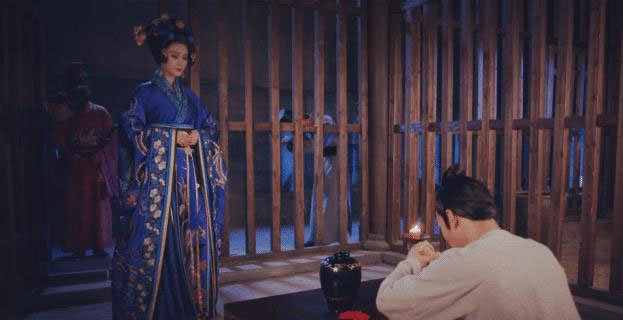
After the death of Emperor Gaozong, all power in the court fell into Wu Zetian’s hands. (Illustrative image).
Wu Zetian always wanted to proclaim herself emperor but faced opposition from the majority of the court ministers.
As a result, she executed many of those who opposed her, especially those from the royal family who received special attention.
Wu Zetian devised a plan for her grandson to create a jade tablet inscribed with the eight characters “Holy Mother descends to the people, eternal imperial career”.
She then spread the word that her grandson had discovered a “mysterious” tablet from the riverbed and presented it to her, claiming that the inscription indicated that Heaven had ordained Wu Zetian as emperor.
Wu Zetian’s goal was to gain recognition from the high ministers.
However, unfortunately for her, all her scheming efforts were in vain as the ministers fundamentally did not believe the story of the “mysterious” tablet that Wu Zetian circulated, and they refused to acknowledge or submit to her.
Some even mocked Wu Zetian, calling her “a hen that knows how to crow”, implying that her desire to become emperor was as unnatural as a hen suddenly crowing, which would surely be an omen of misfortune.
This mocking remark infuriated Wu Zetian.
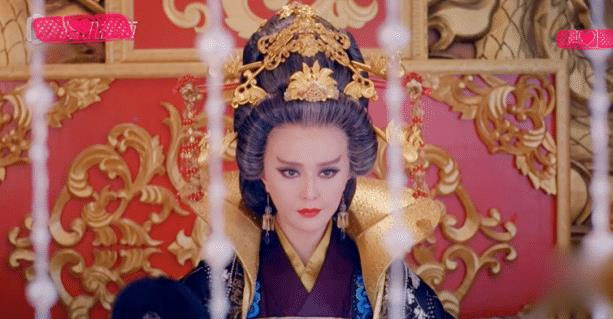
The image of Wu Zetian in a film portrayed by actress Fan Bingbing.
A Single Character that Helped Wu Zetian Eliminate the Opposition of the Ministers and Successfully Proclaim Herself Emperor
Among the ministers who opposed Wu Zetian’s ascension, there were still a few who supported her, including a man named Song Tanke. This individual dedicated himself to assisting Wu Zetian in her journey to become emperor.
Song Tanke understood very well the reasons behind the ministers’ opposition to Wu Zetian becoming emperor. They believed that a woman becoming emperor was a disruption of natural order and not in accordance with propriety.
Having grasped the mindset of the ministers, Song Tanke began to “take action” to change their perceptions.
After much contemplation, Song Tanke finally devised a method. He created a completely new “character” to change the ministers’ long-held biases, this character being “Zhao” (曌).
So, what significance does this character hold that could change the ministers’ longstanding prejudices against Wu Zetian becoming emperor?
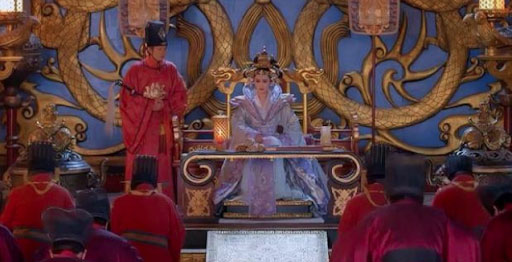
After changing her name, Wu Zetian successfully proclaimed herself emperor. (Illustrative image).
Observing this character, one can see that the upper part consists of the characters “Ri” (日) – sun and “Yue” (月) – moon, while the lower part is the character “Kong” (空) – sky. In summary, the character “Zhao” (曌) signifies the sun and moon in the sky.
The profound meaning behind the character “Zhao” (曌) is what truly makes people reflect.
Ancient people believed that the sun (Ri – 日) belonged to the “yang” side, while the moon (Yue – 月) belonged to the “yin” side. During the day, the sun was responsible for illuminating everything on Earth, while at night, this “task” belonged to the moon.
Corresponding to this view is another perspective, which is that males belong to the yang side, while females belong to the yin side.
Thus, the character “Zhao” (曌) created by Song Tanke encompassed both “yang” and “yin”, simultaneously generating a brilliant light that illuminated everywhere on Earth. This is indeed an extraordinary layer of meaning!
After a period of dedicated thought and creation, Song Tanke presented this character to Wu Zetian.
Wu Zetian was extremely fond of this “intellectual offspring” of Song Tanke and immediately, based on his suggestion, changed her name to “Wu Zhao” to reflect her divine and sacred status.
Following this move by Wu Zetian and her decisive actions against the opposition, the ministers in the court had to remain silent and dared not utter a word.
From that point on, no one dared to mock Wu Zetian as “a hen that knows how to crow” anymore. She successfully ascended the throne, becoming the first and only female emperor in the history of feudal China.



















































